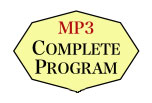 |
Elizabeth Strout
... novelist. Ms. Strout’s Olive Kitteridge, a novel composed of a series of short stories, won the 2009 Pulitzer Prize for Fiction. Ms. Strout is also author of the national bestseller Abide with Me and of Amy and Isabelle. Both won major prizes. A finalist for both the PEN/Faulkner Award and England’s Orange Prize, Ms. Strout’s short stories have been published in magazines from The New Yorker to O: The Oprah Magazine, and elsewhere. She grew up in Maine, is currently is on the MFA faculty of Queens University in Charlotte, NC, and lives with her family in New York City. |
We have to go to literature for the deepest, truest emotions. Otherwise we do not know who are, we cannot understand what it’s like to be another person -- and we must, says Elizabeth Strout, winner of the 2009 Pulitzer Prize for fiction.
“I believe in literature the way some people believe in their religion. What are we without our imaginations?” Ms. Strout challenges readers and writers alike. “How can we feel compassion? How can we feel empathy? How can we be civilized if we are not having our imaginations stimulated, being asked to work? We become dogmatic idiots. And we're better than that.”
Dogmatism and authentically great literature don’t mix, Ms. Strout insists.
“Not if it’s what I think of as the real stuff. As similar as we are, we’re different enough that those differences are vast. And awe inspiring.
“There’s so much foolishness in today’s world. And we’re becoming so accustomed to it. It’s like a dust that’s settling over life’s truer things. It’s like eating. We're just all shoving more and more Twinkies in our mouths.”
Our lives are serious, she insists.
“I don't mean human lives are not hysterically funny, they are! But this is serious stuff we're all trying to do here. The more false sentences we utter, or the more false sentences that are uttered to us, the further away we get from knowing what we really feel.
“When I see sentences that are just spun off without a care, it’s directly affecting the experience of the emotional impact of that story, the gravitas, the resonance that one is hoping to strike. Junk junk junk. One hopes there’s something in us that continues to reach for the pure and the simple and the honest.”
To write a story also stimulates the imagination, she knows.
“There are so many things that go into a piece of writing. There's the emotional truth. There's the story itself. Is it going to leave somebody feeling that they've been through an experience that was worthwhile?
“Then there's also the way it sounds to the ear. Style is substance. I believe that. The way a sentence sounds and the density or the muscularity of a sentence is going to be connected to the heft of a story. What's wrong with trying to bring some sense of resonance and dignity and deep sound to what our stories are?
“Certainly poetry has helped (do that). Poetry is constantly coming in to my apartment. That's very very important to me because I have often thought that poets have an access to something that's really really magical.
“One of the things (Hemingway's ‘write the truest sentence you know’) means is: Don't show off! Be direct. Be as pure and simple as a child. The business of showing off -- or doing some pyrotechnics here or there, or ‘Look what I can do!’ -- to me, that takes away.”
A voracious reader, Ms. Strout also applies her principles for writing to her own voracious appetite for reading.
“I just feel so strongly about this. I think that if you go and read a book that is cheap in its emotions or sentimental, or cutting corners, then you're doing a disservice to yourself and to your understanding of other people.”
[This Program was recorded April 21, 2008, in Atlanta, Georgia, U.S.]
audio content:
Conversation 1 |
Conversation 2 |
Conversation 3 |
Conversation 4 |
Conversation 5 |
Conversation 6 |
6:18 |
11:07 |
8:35 |
11:36 |
5:42 |
|
 |
 |
 |
 |
 |


